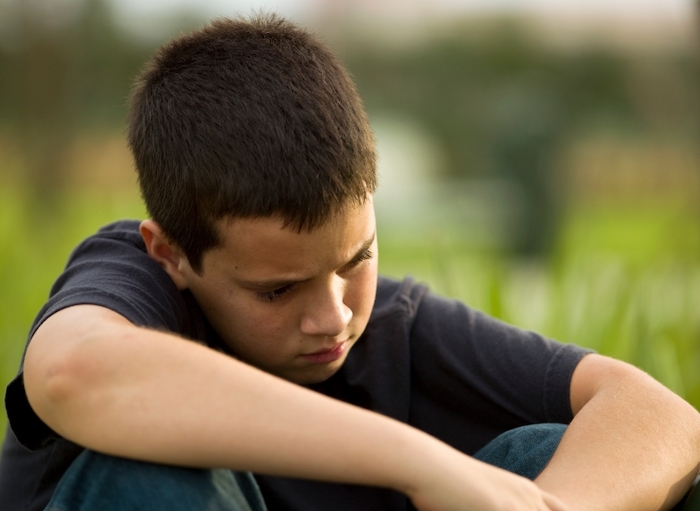
By Amy Ford
The classroom was escalating quickly. With one, swift kick, the desk that perfectly fit a 9-year-old body crashed over, papers and colored pencils strewn about the floor. For being a thin, slight boy, Gabriel had a lot of strength.
It was a scene that happened every month or so. The teacher and the kids knew what to do: Stand back and give Gabe space until he calmed down enough for the principal to walk him to the office. His parent would be called, and he would go home.
What is wrong with Gabe?
Gabe’s parent is at wit’s end. Home life has been hard the past few years, ever since Gabe’s older brother was killed in a hunting accident. The parents have managed to stay together, and with two other young children, plus Gabe’s growing special needs, the parent is at a loss as to how to help Gabe. The principal is equally as frustrated. These classroom episodes can’t continue because they jeopardize everyone’s safety and learning environment.
Is Gabe oppositional defiant? Does he have ADHD, a developmental disability, or a learning disorder? Perhaps a battery of special education testing or an IEP(individualized education plan) is needed. That thought only increases the anxiety within Gabe’s parent. How will a diagnosis like this impact Gabe throughout his lifetime?
Grieving children
There are millions of grieving children in the United States. With increases in school violence, mass casualty events, and accidents, those numbers are expected to rise. Grief and loss are hard to talk about, and parents and concerned adults often are at a loss for resources.
It’s easy to assume that children who experience a loss like death, or a trauma like a community disaster, are grieving children. Indeed, they are. What about kids like Gabe? Gabe’s brother died years ago … surely Gabe is over that by now. Or is he?
The No.1 mistake
Adults make a big mistake when it comes to grieving children: Assuming that children process their grief verbally.
Have you ever heard a child younger than 14 say, “I’m going through my anger stage,” or “I’ve accepted my loss?” I haven’t, unless they were parroting an adult. Children’s brains are usually not developed enough to process information — traumatic or otherwise — in language. They respond to stressors (e.g., loss and trauma) through their behavior and emotions.
Adults typically recognize the Five Stages of Grief theory developed in 1969 by Swiss-American psychiatrist Elisabeth Kubler-Ross. This approach has been effective to heal grief. It requires the ability to process sophisticated emotions — shock, denial, anger, bargaining, acceptance — by talking about them. Children don’t yet have the brain capability to process their loss this way.
What works best with grieving children
Instead, we need to meet grieving children where they are at, using interventions that work for them. Gabe’s mother, school counselor, or teacher could try these strategies:
Address grief before considering any other diagnosis. This could be done through meeting with the school counselor, therapy outside of school, and/or parent-child interventions at home.
Don’t expect Gabe to verbalize feelings about his loss. Instead, expect a wide range of behavior — anything from behavioral acting out, high anxiety, perfectionism or withdrawal.
Be aware that high-intensity activity might trigger high-intensity emotions. Plan ahead, and have a “Plan B” (an alternate activity) ready if Gabe needs it.
Respond to the feeling behind misbehavior (loss) whenever possible.
Provide materials for Gabe to express feelings about his loss in non-verbal ways. Art supplies, toys, books and sensory objects (e.g., sand and bean trays) are great tools.
The older Gabe gets, the more capable he will be of working through his feelings through reason and language. In the meantime, it’s important that we adults don’t miss the fact that he is grieving. Let’s not call it a behavioral problem, or otherwise mislabel it, until he has been able to process his grief in the way his 9-year-old brain is able to.
Complete Article ↪HERE↩!
